Indigenous Governance Database
IGD Database Search
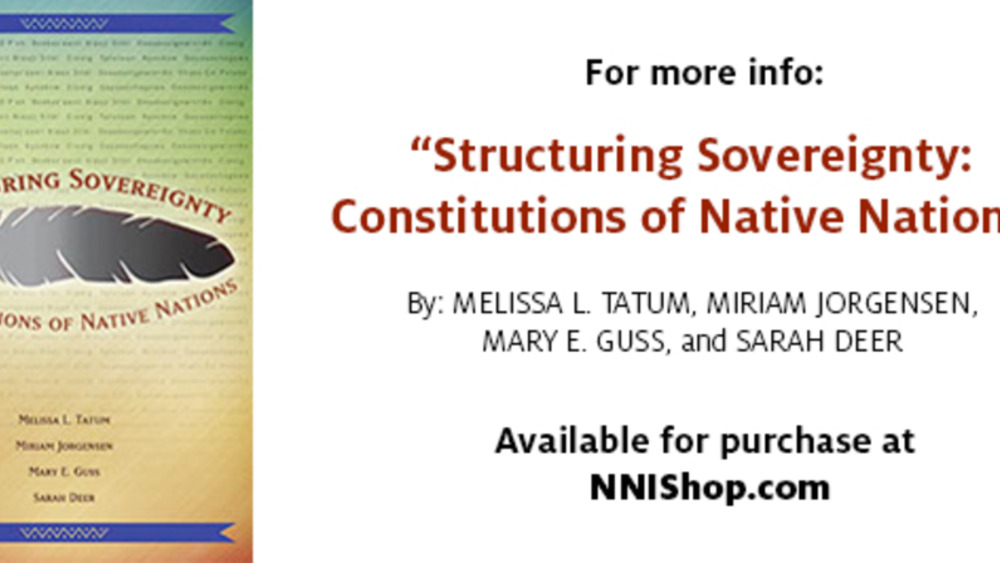
Fort McDermitt Paiute and Shoshone Tribe Constitution
Location: Nevada, Oregon Population: 700 Date of Constitution: 1936
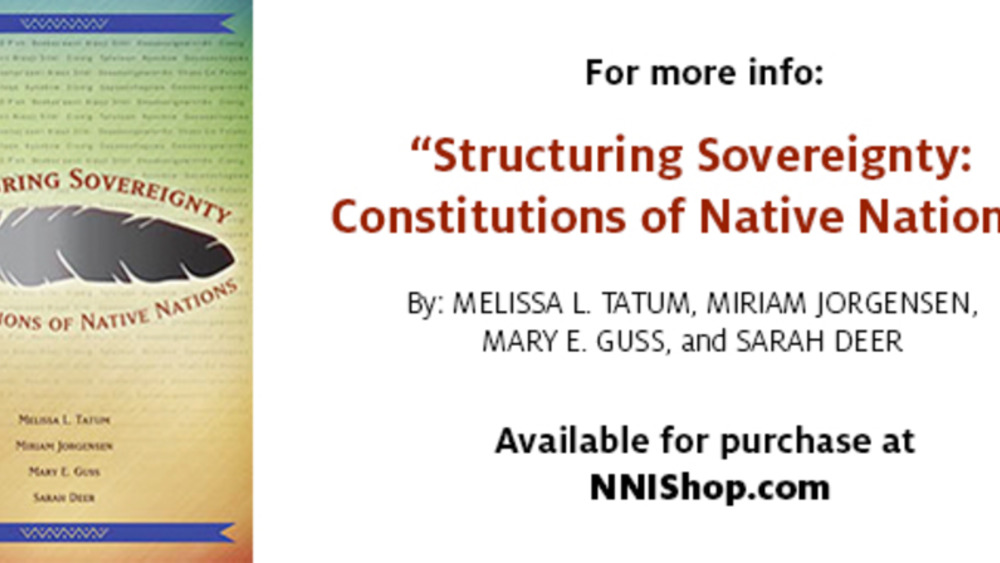
Fort Belknap Indian Community Constitution
Location: Montana Population: 7,000 Date of Constitution: 1935 Key Facts: This version of the constitution is from the tribe’s website. Please note that the National Indian Law Library’s site indicates an amended version exists.
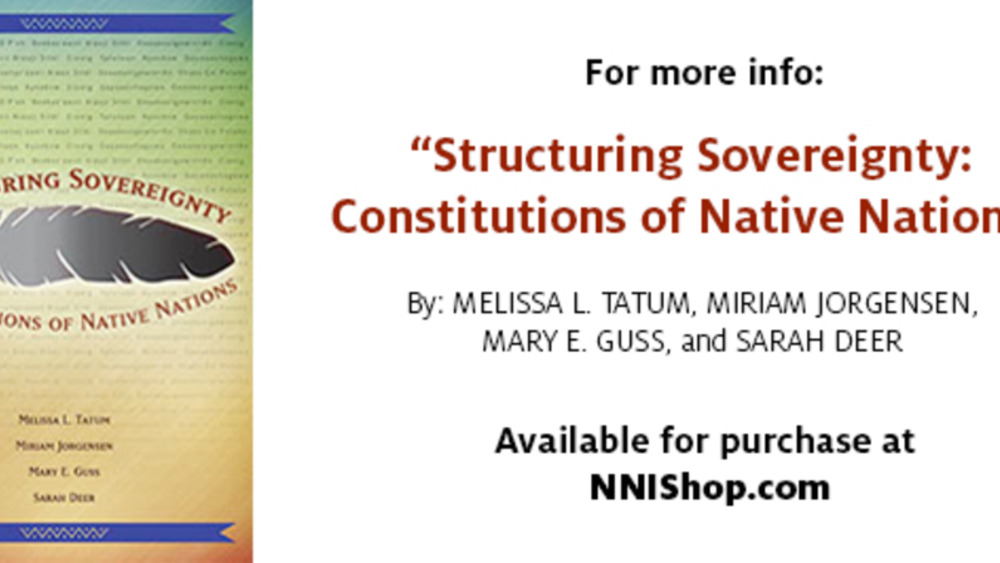
Ely Shoshone Tribe Constitution
Location: Nevada Population: 500 Date of Constitution: 1966, as amended 1990 Preamble: We, the Ely Shoshone Indians of Nevada, located at Ely, Nevada, to exercise our traditional and historical inherent sovereign powers and to improve the constitution previously adopted, pursuant to the Indian…
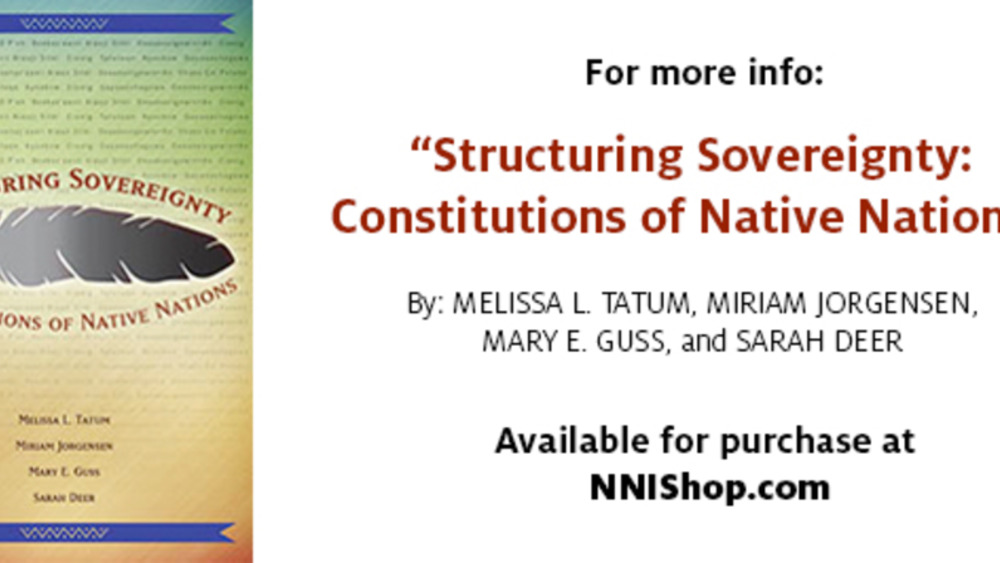
Douglas Indian Association Constitution
Location: Alaska Population: 600 Date of Constitution: 1941 Presamble: We, a group of Indians having a common bond of occupation in Arts and Crafts, and the Fishing Industry, including the catching, processing and sale of fish, and the building of fish boats and equipment, belonging to…
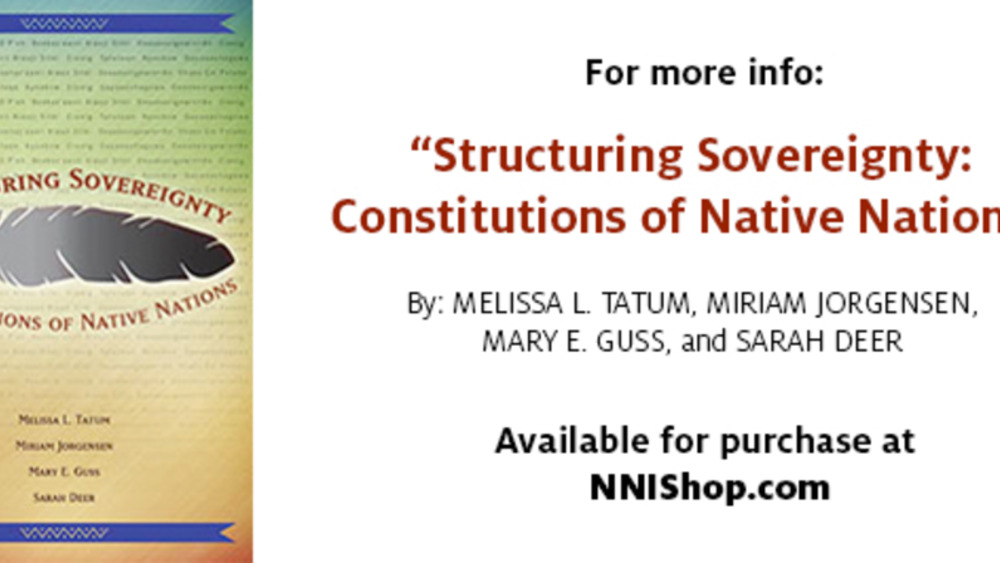
Coquille Indian Tribe Constitution
Location: Oregon Population: 968 Date of Constitution: 1991, as amended 2008 Preamble: Our ancestors since the beginning of time have lived and died on the Coquille aboriginal lands and waters. The Coquille Indian Tribe is and has always been a sovereign self-governing power dedicated…
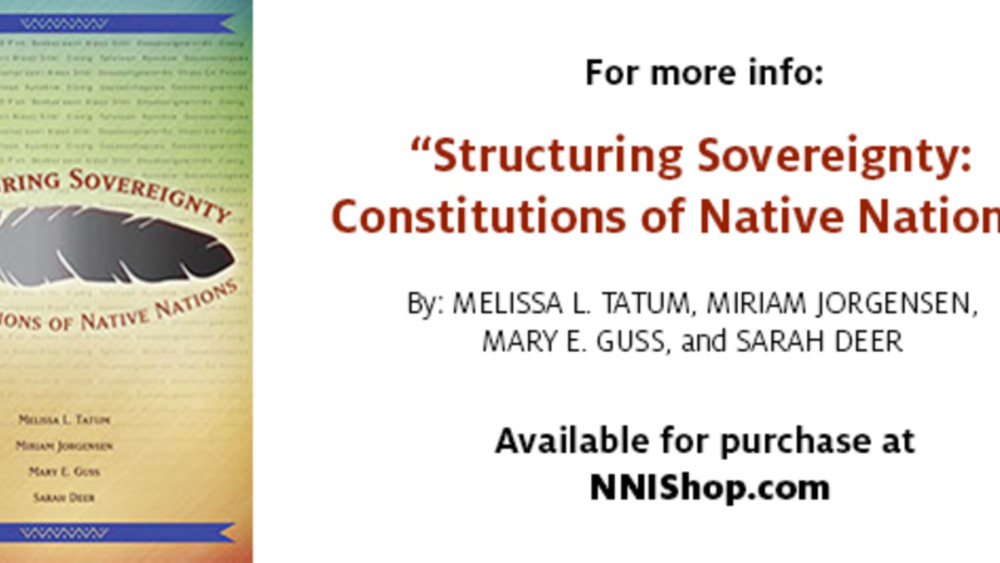
Confederated Tribes of Siletz Indians of Oregon Constitution
Location: Oregon Population: 4800 Date of Constitution: 1979, as amended 1994 and 2008 Purposes: Oregon 4800 1979, as amended 1994 and 2008 We, the members of the Confederated Tribes of Siletz Indians of Oregon, being a federally recognized Indian tribe and the political successor in interest to…
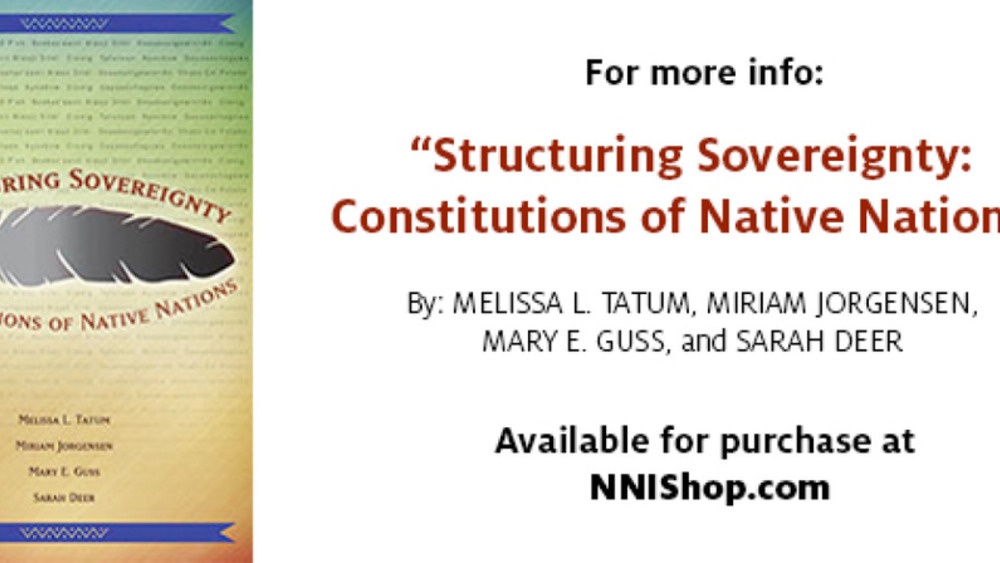
Confederated Salish and Kootenai Tribes Constitution
Location: Montana Population: 7,000 Date of Constitution: 1935 Preamble: We, the Confederated Salish and Kootenai Tribes of the Flathead Reservation, Montana, in order to establish a more responsible organization, promote our general welfare, conserve and develop our lands and resources, and…
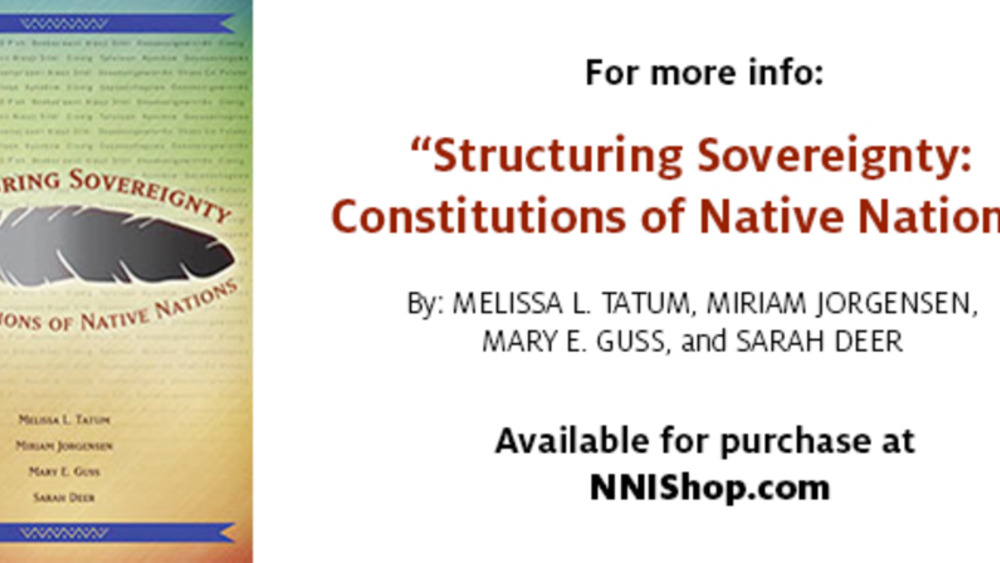
Citizen Potawatomi Nation Constitution
Citizen Potawatomi Nation is located in Oklahoma with a population of 29,000 people. The constitution was enacted in 1938 and amended in 1985 and 2007. Preamble: We, the Citizen Potawatomi Nation, sometimes designated as the Potawatomi Tribe of Oklahoma, in furtherance of our inherent powers…
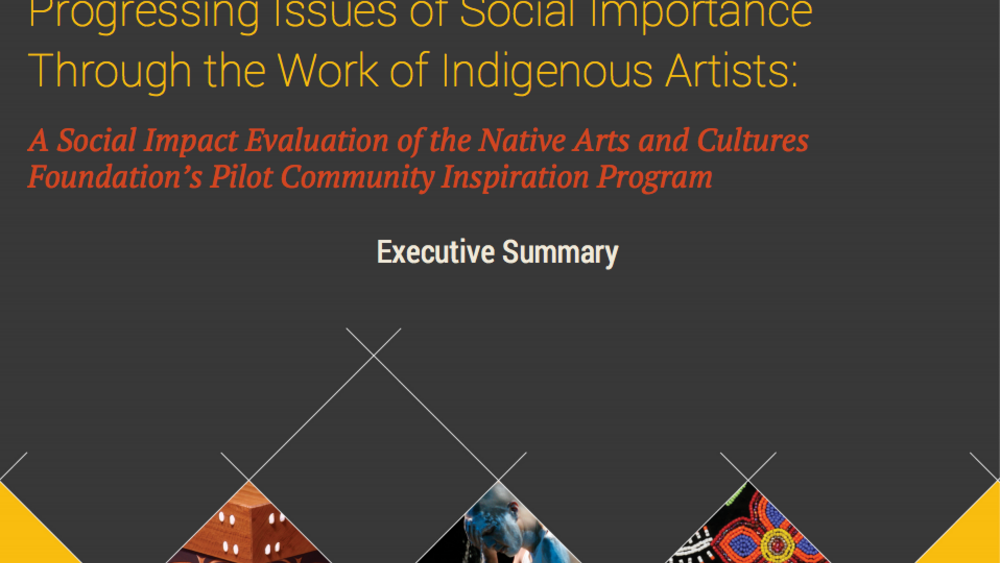
Progressing Issues of Social Importance Through the Work of Indigenous Artists: A Social Impact Evaluation of the Native Arts and Cultures Foundation’s Pilot Community Inspiration Program
In 2014, the Native Arts and Cultures Foundation (NACF) launched a new initiative, the Community Inspiration Program (CIP), which is rooted in the understanding that arts and cultures projects have an important role to play in motivating community engagement and supporting social change. This…

Ahwahsiin (The Land/Where We Get Our Food)
Indigenous Peoples’ knowledge and food systems are fast disappearing but are of the utmost importance, not only for sustaining Indigenous Peoples but also for providing alternative paradigms for coping with diverse ecosystems in a changing global environment. This research examines Blackfeet…
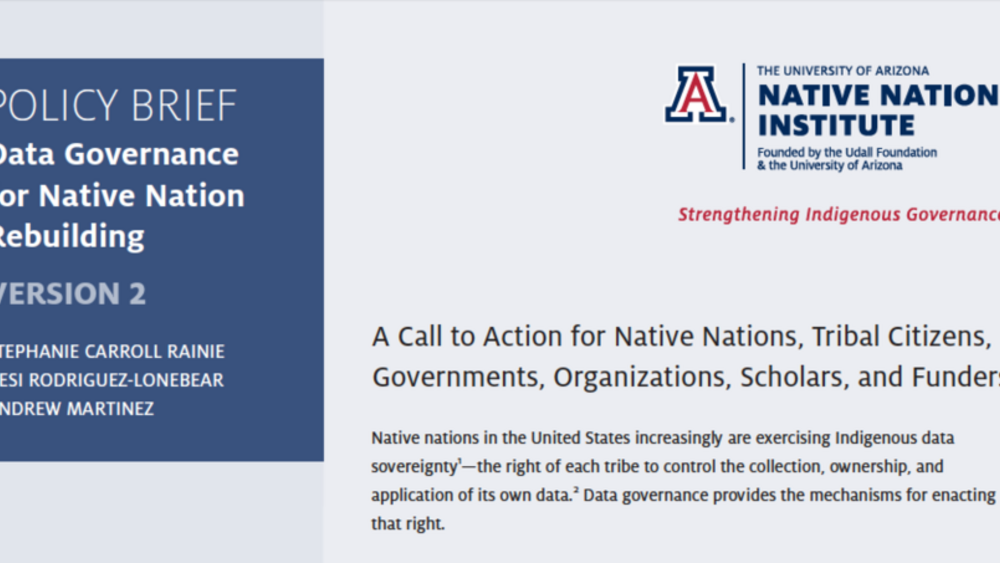
Policy Brief: Data Governance for Native Nation Rebuilding
Native nations in the United States are increasingly exercising Indigenous data sovereignty (ID-Sov)— the right of a nation to govern the collection, ownership, and application of its own data. While ID-Sov is the goal, data governance— the ownership, collection, control,…
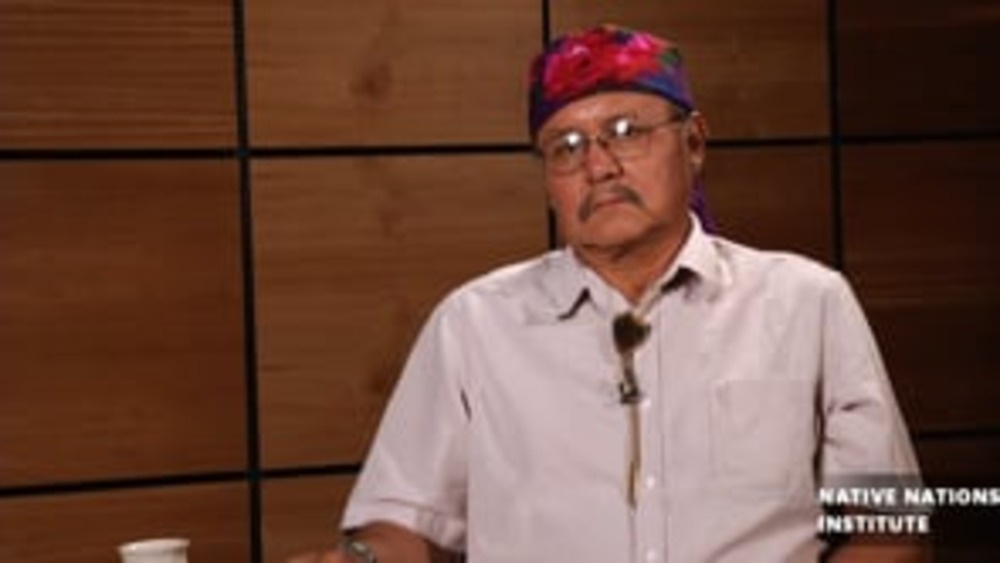
Avery Denny: Origins of Navajo Leadership
Avery Denny is a member of Diné Medicine Man’s Association and is faculty at the Center for Diné Studies at Diné college Diné hatáli. As an instructor for over 29 years, he has taught courses on herbology, holistic healing, and Diné culture, oral history and philosophy. Avery…
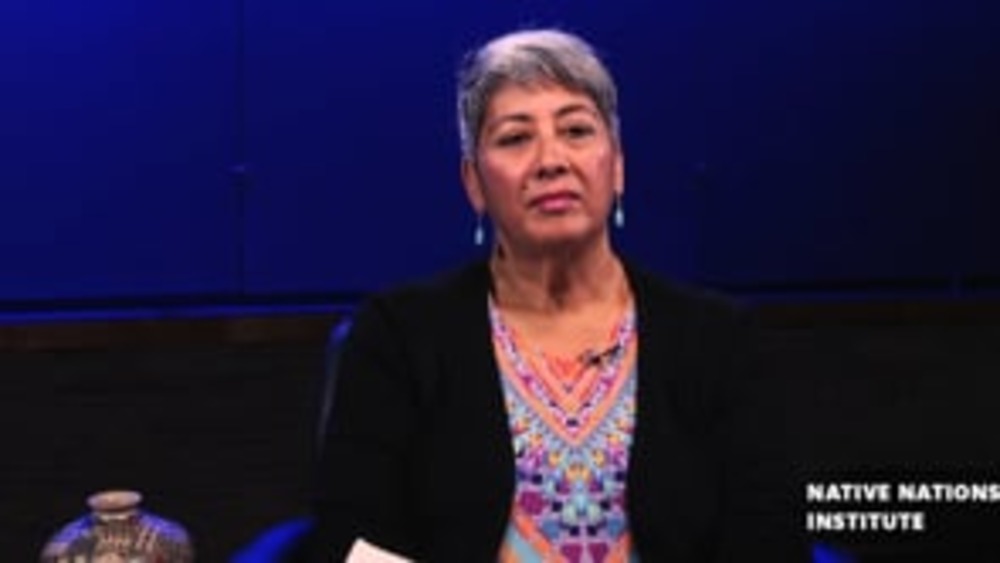
Sharon Toi: Honoring Maori Traditions and Governance
Sharon Toi is Ngāpuhi Māori and a 2014 recipient of a Fulbright Visiting Scholar-Ngā Pae o Te Māramatanga Graduate Award that funded her residency at the Indigenous Peoples Law and Policy Program housed within the University of Arizona’s College of Law. Sharon shares her extensive knowledge…
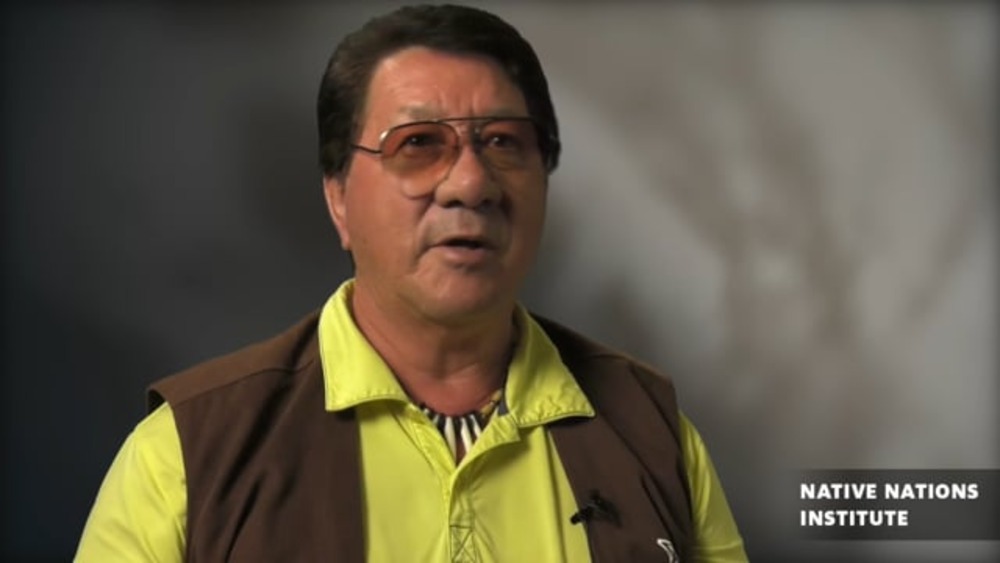
Michael Kanentakeron Mitchell: Stories and Reflections on Indigenous Governance
Former Grand Chief Michael Kanentakeron Mitchell of the Mohawk Council of Akwesasne recently stepped down from his role as Grand Chief after decades of building a strong independent jurisdiction. Chief Mitchell offers some of his stories and reflections in indigenous governance that…
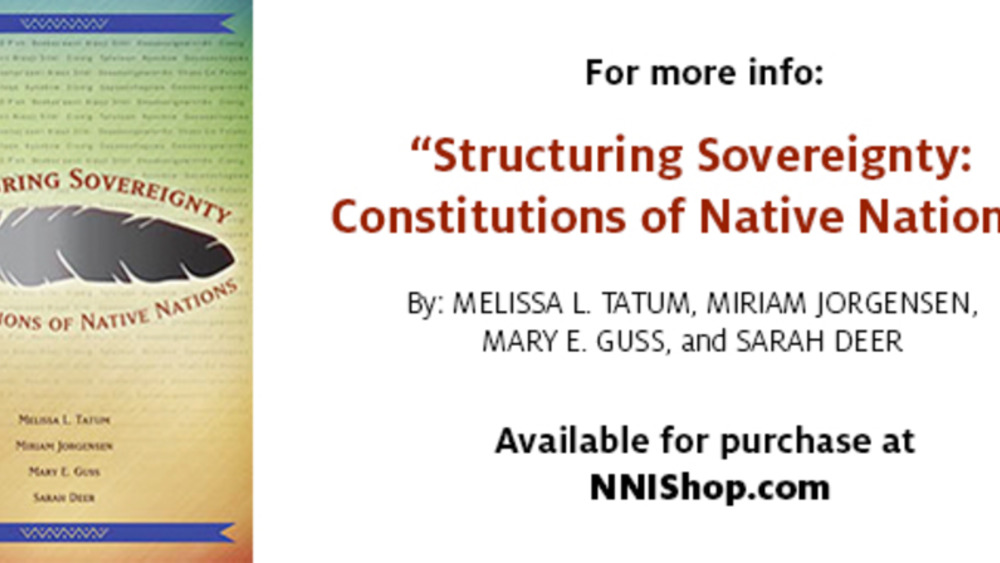
Chitimacha Tribe of Louisiana Constitution
The Chitimacha Tribe of Louisiana is located in Southern Louisiana with a population of 950 people. The constitution was enacted in 1970 and amended in 2009 and 2010. Preamble: We, the Chitimacha Indians of Louisiana, desiring to establish an organization for our common welfare and benefit,…
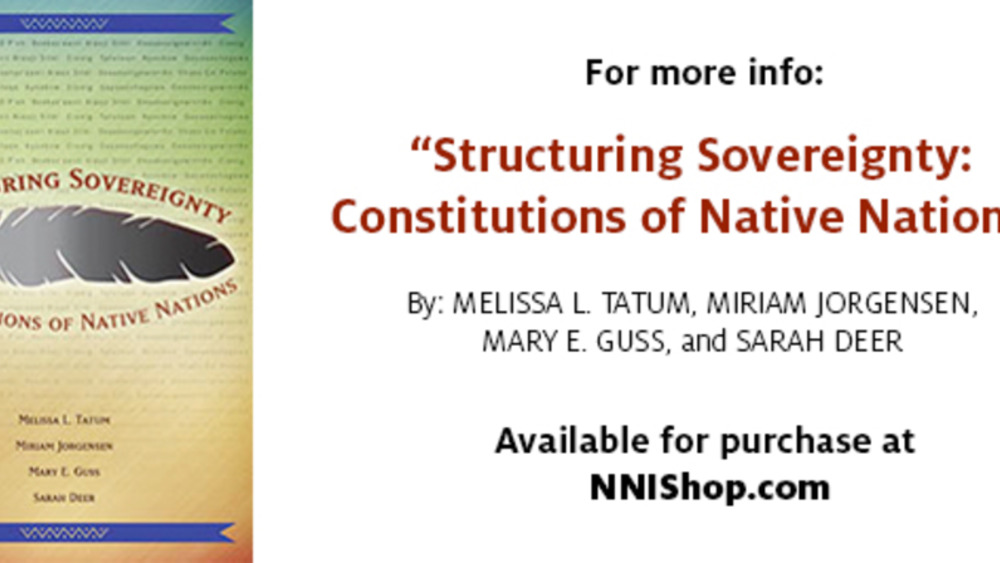
Chilkat Indian Village Constitution
The Chilkat Indian Village is located in Southeastern Alaska with a population of 140 people. The constitution was enacted in 2006. The village was involved in a famous cultural property case about Whale House rain screen and totem poles. Preamble: We, a sovereign community of Tlingit Indians…
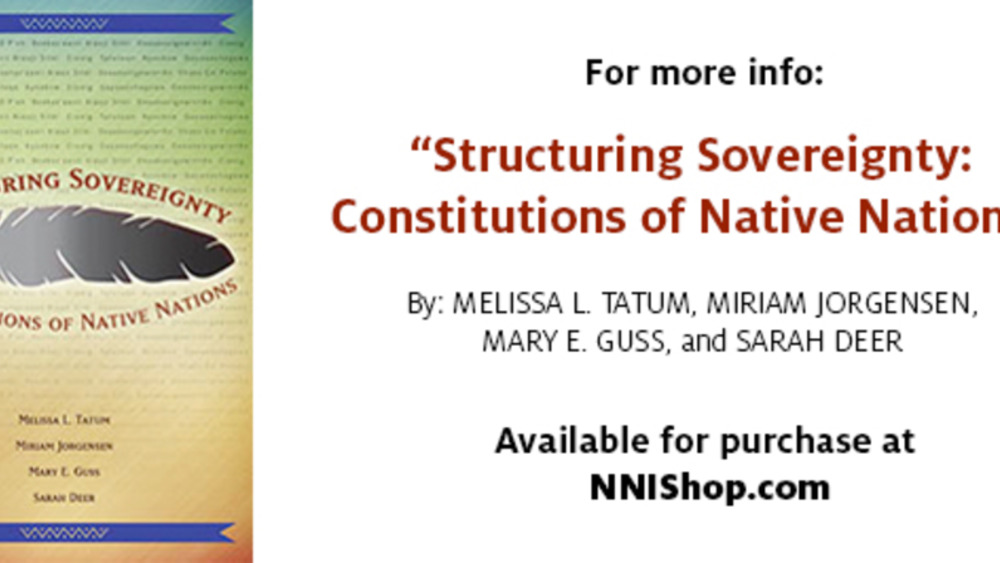
Chickasaw Nation Constitution
Chickasaw Nation is located in Oklahoma with a population of 49,000 people. The constitution was enacted in 1983 and amended in 2002. Preamble: We, the people of the Chickasaw Nation, acknowledging with gratitude the grace and beneficence of God, in permitting us to make choice of our…
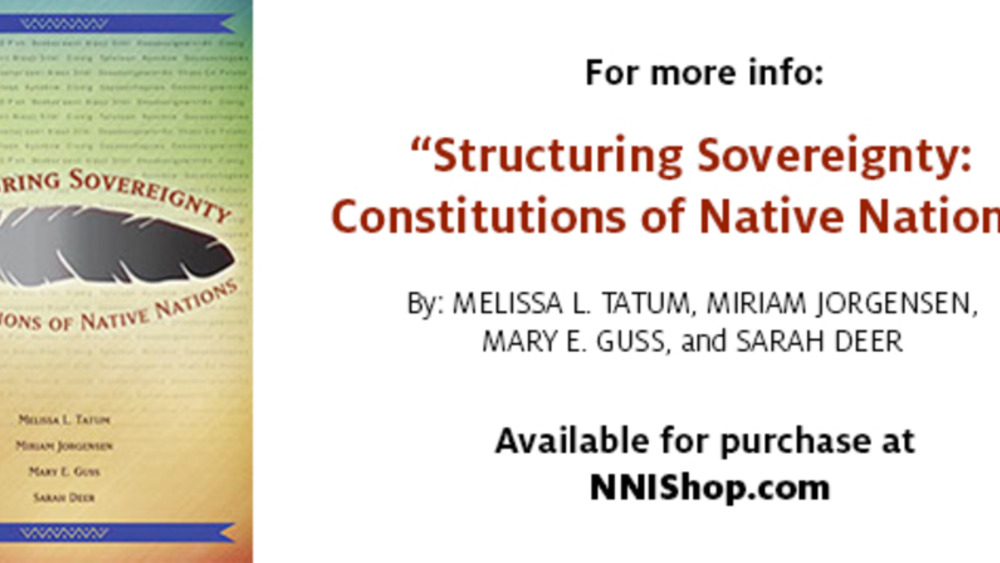
Blackfeet Nation Constitution
The Blackfeet Nation is located in Northern Montana at the Canadian border. It has a population of 16,500 people and the tribe was artificially divided by the U.S.-Canadian border. The constitution was enacted in 1934 and amended in 1962, 1978, and 1998. PREAMBLE: We, the adult members of the…
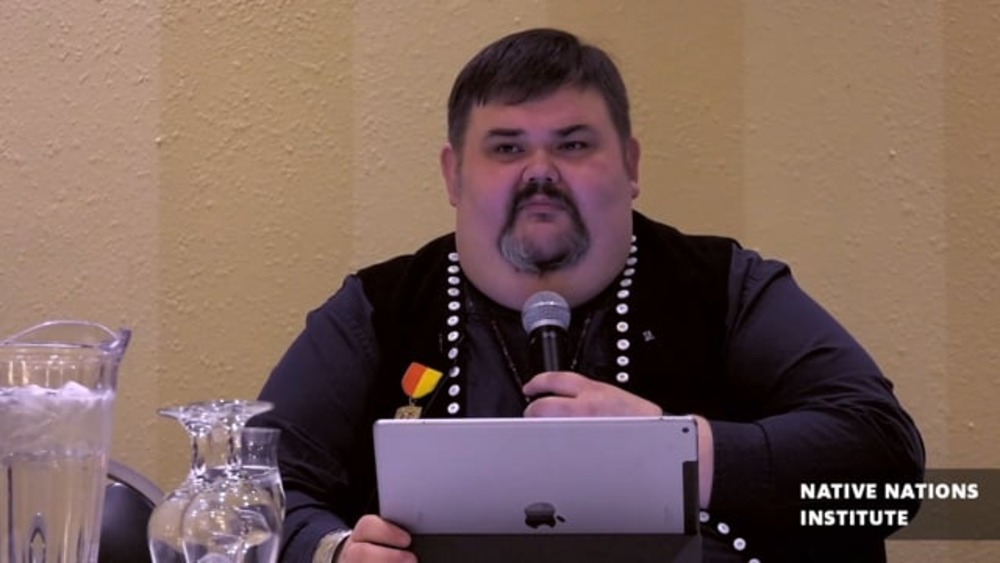
Richard Peterson: Leading in the Traditional Way Alaska Tribal Government Symposium
President, Central Council of the Tlingit and Haida Indian Tribes of Alaska Richard (Chalyee Eesh) Peterson is Tlingit from Kaagwaantaan clan. He gives his prespective on the ways tribal governement makes a presence in Alaska and the intergrating traditional knowledge and culture into tribal…
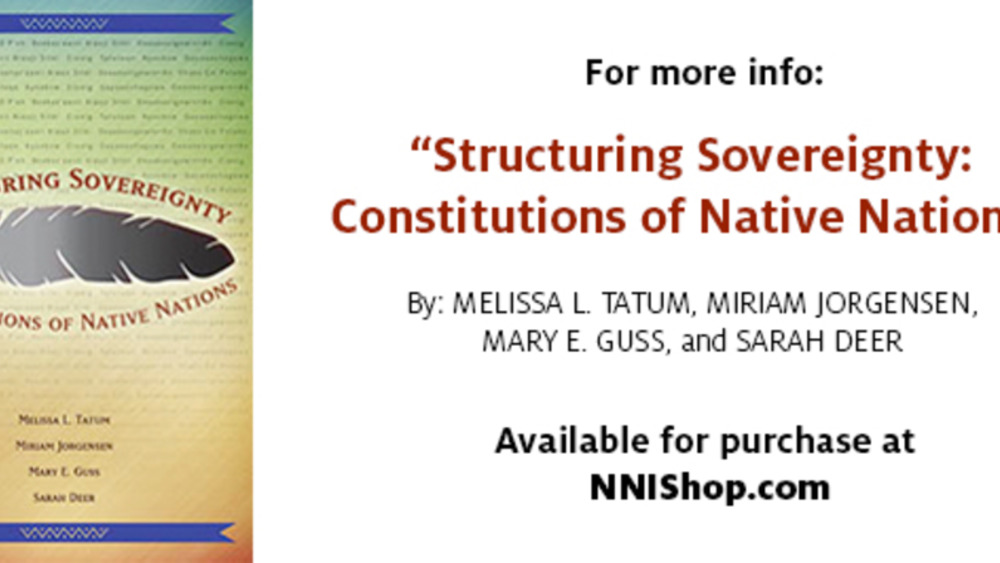
Alabama and Coushatta Tribes of Texas Constitution
The Alabama and Coushatta Tribes of Texas is located in East Texas with a population of 1,000 individuals. Their constitution was ratified in 1938. The federal government terminated its relationship with the tribe in 1954 and restored federal recognition in 1987. Preamble: We, the Alabama and…
Pagination
- First page
- …
- 17
- 18
- 19
- …
- Last page
